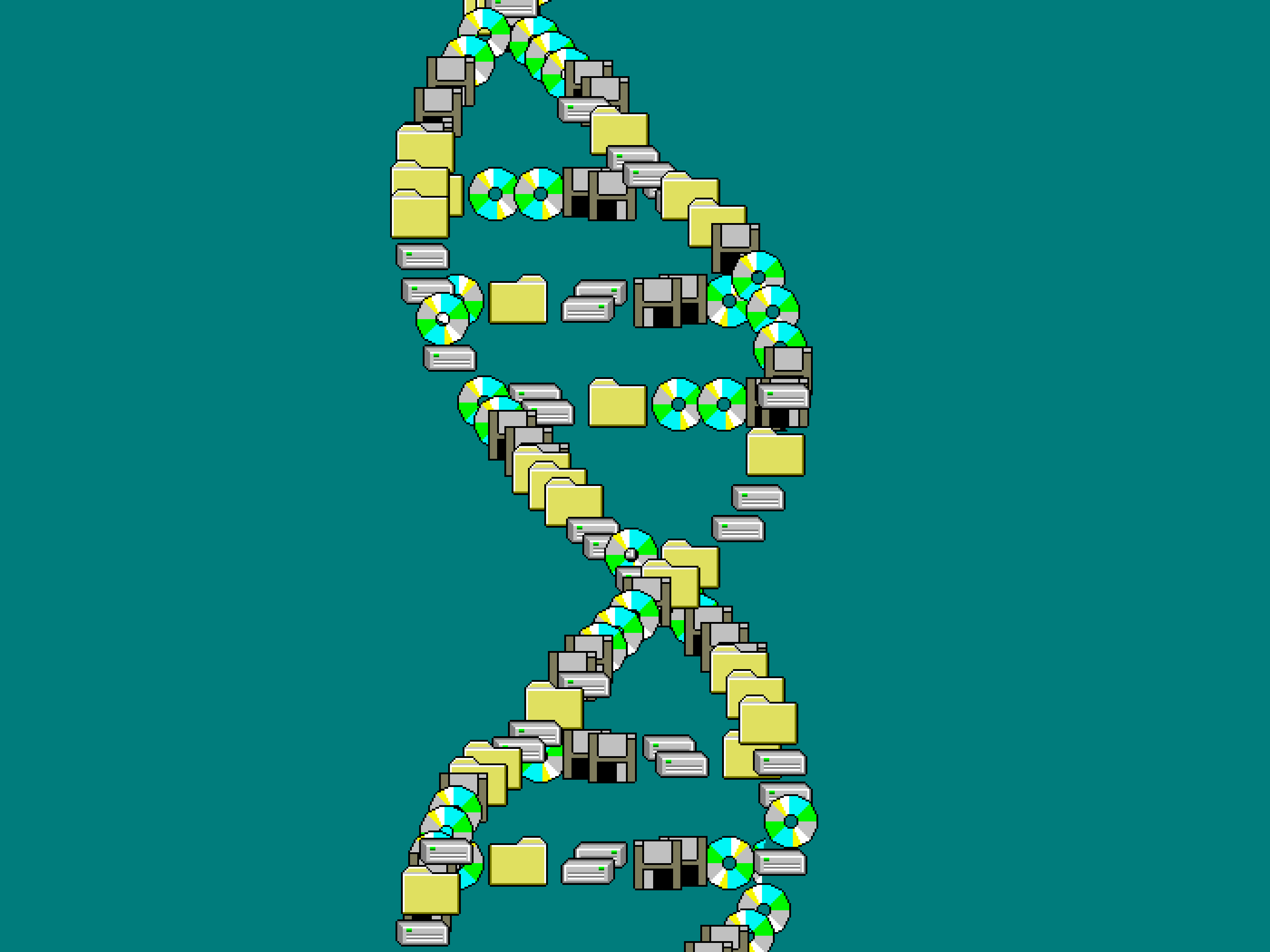

Well-Oiled Machine
Q1: What inspired you to create a company focused on computational biology solutions for biotech R&D?
A: I am very focused on meaning in life; doing meaningful things; things that make sense. I have been in Academia my whole career and did not even think I was cut out to work in Industry. I thought that “out there” profit drove all decisions, so it would be impossible to find a way to do meaningful work. Well, a time has come when it is difficult to do meaningful work in Academia as well. Politics has come to have such a strong influence on which projects get funded, who gets promoted or fired, whether you get good students or not. I was just finding it more and more difficult to do the mental gymnastics necessary to fight indoctrination and justify doing research for the sake of gaining valuable knowledge. I wanted freedom, I guess.
Since I have left Academia, I found that - of course! - profit does drive decisions. But it is also a function of the market, and it is indeed feasible to find “my tribe” of people on that market who just want to do useful things, untainted by political inclination. So I am still hopeful. My niche is small right now, but I am hoping that just by focusing on the usefulness of my product, I can make this work.
Q2: Can you share an overview of your product idea and how it came to you?
A: I started the company thinking we would be a consultancy, helping other Biotech R&D companies with their big data and biological computing needs. I knew what we could be doing, because I have done that for companies throughout my career as an academic. But turns out, I had no idea how to find clients, determine my market, or any other of this business stuff, haha! There is a lot more to it than we are exposed to in Academia. As scientists, it can be relatively easy to find other labs willing to collaborate on a project: you go to conferences, exchange ideas, find complementary expertise, and voila - you have a collaboration. So long as they don’t have to pay you. So long as the goal is to co-author a paper, and the university is satisfied to pay you to do that, then it works. That’s getting harder, obviously, as I mentioned above. In Industry, there is a whole art and science in determining your target market, and figuring out what to say in order to drive interest in your services. It is a whole new skill that I have to acquire, and I was spending a lot of time taking classes.
In the meantime, I thought of applying for some SBIRs based on some older ideas I had, just to gain an alternative stream of income. My older ideas did not pan out, but a new one emerged; I am not sure how. Through discussions with colleagues and a download from God I guess. But yes, an idea occurred to develop a computational method to predict the emergence of a blood cancer in people who have already had a primary solid tumor and gone into remission.
Apparently, certain therapies can predispose a person towards developing a secondary malignancy, which is very difficult to detect. By the time it is detectable, it can be too late for many people, so it is a very tragic outcome. The numbers I see in the literature suggest that it’s a rare outcome. Yet when I discuss it with colleagues, friends, and acquaintances, the anecdotal evidence suggests the incidence to be very noticeable, and the impact on families very high. These patients pass away so quickly, and the diagnosis is so unexpected, that the emotional toll on their family and friends is absolutely tragic. So yes, this project qualifies as being meaningful in my book. It will be a lot of genomic analyses, some software development and AI algorithms. I think we can do it :-) .
Q3: What emerging trends in computational biology do you think will have the biggest impact on biotech in the next 5 years?
A: AI, cloud and edge computing, definitely. Maybe quantum computing - but that will probably impact biotech through AI rather than directly, at least in the beginning. We (scientific community, humanity) have acquired so much data: genomic, transcriptomic, proteomic, metabolomic, phenotypic, environmental, and so on. We’ve known for decades that it would be difficult to synthesize these data into a coherent picture, and to make advances in biotech products as a result. And yet, we kept acquiring data - because we knew that living beings are so complex, we would need to know a lot more to understand them better. The natural step then, was to devise computational algorithms to integrate these multimodal, multivariate datasets and synthesize meaning (actionable intelligence) from them. We used to call those algorithms Machine Learning in 2012-2020. But then it all just became “AI”.
When you look at current publications or talk with scientists in Biotech companies, everyone is emphasizing AI for data integration. It’s what everyone is doing. This requires a lot of compute, and cloud is the most convenient for that, so most companies I spoke with utilize the cloud, rather than keeping compute clusters on their premises.
I mention edge computing because cloud and cluster computing are expensive. The data is very big (Terabytes, Petabytes), making data transfers and storage in the cloud expensive as well. Most of the data needs to be filtered and reduced to usable information before being integrated with other modalities. Doing the latter close to the devices that acquire those data (e.g., calling genomic mutations right on the sequencing machine) makes a lot of sense. Nonetheless, the integration step still needs to be done via AI, on some compute platform. Right now AI uses conventional motherboard platforms carrying massive GPUs, and it is all still slower than we’d like. Quantum computing is expected to fix that. Where the energy to power quantum computers will come from, I know not. But that is where humanity is heading. So Biotech needs to be ready for it.
Q4: What advice would you give to academics starting new biotech businesses?
A: One trait that has been most useful for me so far is being flexible about everything. Being open to changing plans and adapting to the situation constantly. Did the client cancel the project before signing a contract? Okay, back to marketing. Is the marketing not yielding good results? Okay, take a course to improve marketing. No money to collect preliminary data for a federal proposal? Okay, just submit anyway and expect to be rejected - but at least get feedback on it. Did that feedback come too close to the resubmission deadline? Okay, pick a new deadline. Pick several deadlines and pursue them one after another. No one on the payroll can help you with the writing? Get an intern. And so on and so forth. I frequently worry that my colleagues think I have gone completely schizoid, changing plans all the time. It is really not my preference. I would rather stick to the plan and plow through with it. But, in an early-stage startup, with no money and little help, one just has to take the input as it comes and adapt accordingly. The objective is to keep making progress, not to appear sane. We want our colleagues to feel sane; how we appear to them - well, that’s less relevant, haha!
Another great principle that has helped me is being willing to delegate to people who are better than me at certain tasks. A CEO in early-stage biotech can fall victim to multitasking, feeling like you have to also be a CFO, and a CTO, and a CMO, and whoever else… That’s just a recipe for burnout and disaster. Pick one thing, work on it, and let others help you when they can. Some other things won’t get done. That’s fine. Just do what has to be done, and accept help. Ask for it.
Finally, the hardest part of all, for me at least: accepting that one may have to become a totally different person when going from Academia to running a business. Nothing is the same. Priorities, what sells and to whom, hourly rates, values, market, everything. You might think that as a head of an academic lab you know a thing or two about leadership. It’s true, you do. What kind of leader you have to be in Industry is not the same as in Academia.
As a CEO in business, your one job is to make profit. Face up to that reality. Nothing in business exists outside of that. If you cannot become one with that reality, maybe you should be founding a non-profit company - a valid life choice. Don’t get me wrong, it is extremely possible to do good in the world, to help people and pursue meaningful goals while operating within the confines of the “make a profit” role. It’s just that funding those things has to come from other sources, and therefore requires a different pace, approach, and justification compared to Academia or nonprofit organizations. Thus, it takes a different kind of person to succeed at it. You have to become a different person. Good luck!
Liudmila Sergeevna Mainzer is the CEO of Well Oiled Machine, LLC, where she leads software performance optimization and workflow development for large-scale data analysis in high-stakes environments, with specialized expertise in biomedical research, agriculture, and health sectors. Previously, she served as Director of the Advanced Research Computing Center at the University of Wyoming, overseeing advanced computational initiatives. With over a decade at the National Center for Supercomputing Applications, she held roles as Technical Program Manager in Genomics and Senior Research Scientist, driving innovations in high-throughput data analysis, supercomputing workflows on systems like Blue Waters, and collaborations with institutions such as Mayo Clinic and Argonne National Lab. Her work has contributed to breakthroughs in clinical genetic analysis, Alzheimer's research, and evolutionary biology, including theories on protein architecture and prebiotic evolution. She is passionate about mentoring, educational outreach, and bridging computational science with real-world applications.
Picture: The New Yorker




